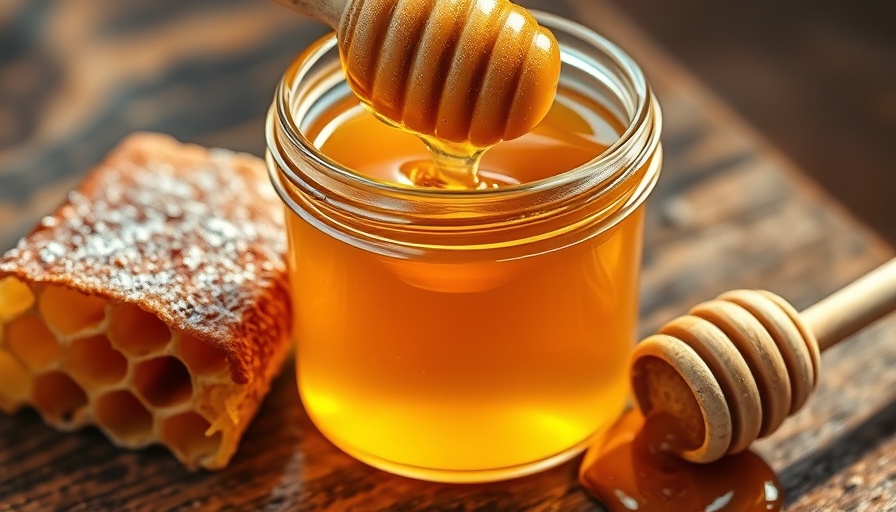
Exploring the Sustainability of Natural Sweeteners
As our awareness about sugar consumption grows, many people are turning to natural sweeteners. The question arises: are these alternatives more sustainable than traditional sugar? In our examination of several popular natural sweeteners—stevia, honey, maple syrup, and agave—we aim to uncover their environmental footprints and health benefits.
Understanding Stevia: A Low-Impact Crop
Stevia, sourced from South America, has gained immense popularity due to its intense sweetness without any calories. It’s cultivated primarily in China and Paraguay, where its production methods vary significantly. While China is the largest producer, its methods often lack sustainability practices. In Paraguay, however, indigenous farmers have grown stevia traditionally, offering a sustainable twist, although they've often been excluded from the burgeoning industrial market.
Recent studies by PureCircle reveal that stevia's carbon footprint is remarkably lower than that of high fructose corn syrup and even standard cane sugar. With a life cycle assessment from the University of Surrey citing that stevia emits about 10% of the greenhouse gases associated with sugar production, it becomes evident that, when produced responsibly, stevia serves as an eco-friendlier option.
Honey: The Sweetness of Sustainability
Honey stands out since it can be produced at home, making it an incredibly sustainable choice. Home beekeeping not only fosters sustainable gardening choices but also provides essential pollination for nearby plants. However, commercial honey production poses environmental concerns due to the carbon emissions incurred through the transportation of hives. Significant differences exist in the CO2 impacts of honey produced in varying regions, with honey from China and Mexico being less carbon-intensive than that from Italy and Spain.
As regenerative beekeeping practices emerge, emphasizing hive rotation and native flora planting, the carbon costs associated with honey production may be further reduced, making it a viable sustainable sweetener when sourced responsibly.
Maple Syrup: Balancing Tradition and Technology
Producing maple syrup, primarily in North America's Northeast, is subject to its own environmental dynamics. Traditional methods consume considerable energy due to the boiling process needed to convert sap to syrup, leading to a significant carbon output. However, advancements in reverse osmosis technology have allowed modern producers to drastically cut energy use and emissions.
Interestingly, despite its carbon footprint, maple syrup production incentivizes conservation efforts in forested areas, promoting the sustainability of carbon-rich woodlands. Thus, its production carries an economic element that suggests it could potentially be a carbon-neutral or even carbon-positive industry.
Agave: Sweetness with Caution
Originating solely from Mexico, agave syrup offers a low-impact alternative as well. The agave plant minimizes water use and has certain sustainability advantages. However, its cultivation as a monoculture has raised concerns regarding local biodiversity loss. Moreover, the recent surge in tequila production often leads to the unsustainable harvesting of agave before it flowers, jeopardizing its role as a vital pollinator for bat populations.
Conservation initiatives, such as the Agave Restoration Initiative, aim to counter these issues by encouraging sustainable cultivation practices that benefit both farming communities and critical wildlife.
Conclusion: A Sweet Future Demands Conscious Choices
While the environmental impacts of natural sweeteners vary, stevia, honey, maple syrup, and agave each hold unique positions in promoting sustainability. Conscious consumer choices—favoring local, organic, and fair-trade products—can enhance the positive impacts these sweeteners have on the environment. Therefore, as consumers make mindful selections in today's market, the potential for these sweeteners to add both flavor and sustainability to our diets remains highly promising.
Make informed decisions when choosing your sweeteners, and consider those that align with your values, benefiting both your health and the planet!
 Add Row
Add Row  Add
Add 




Write A Comment